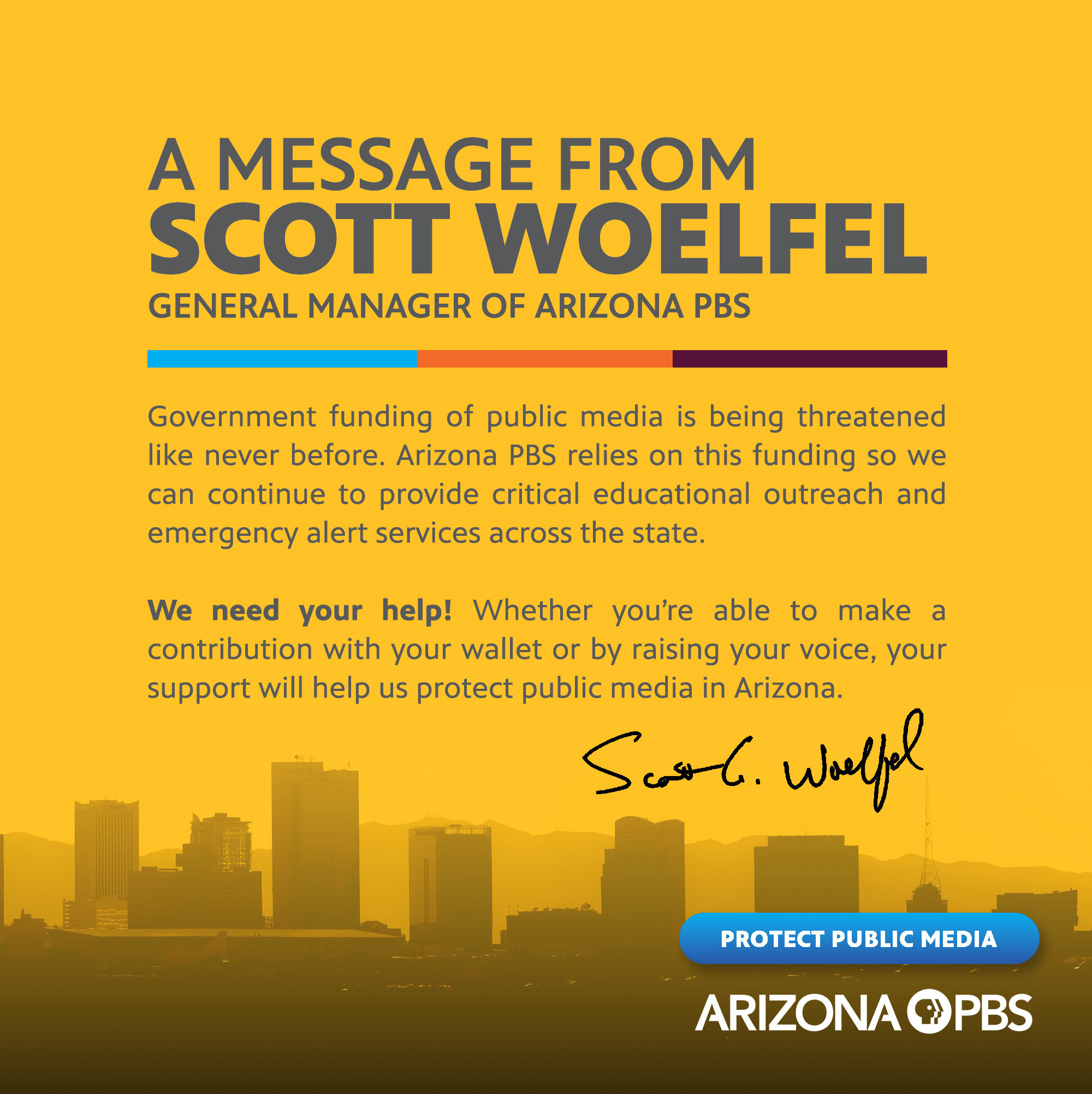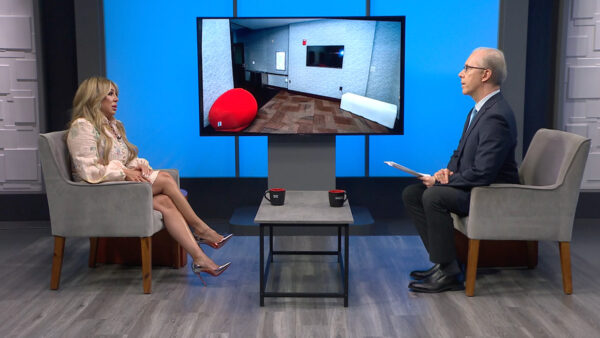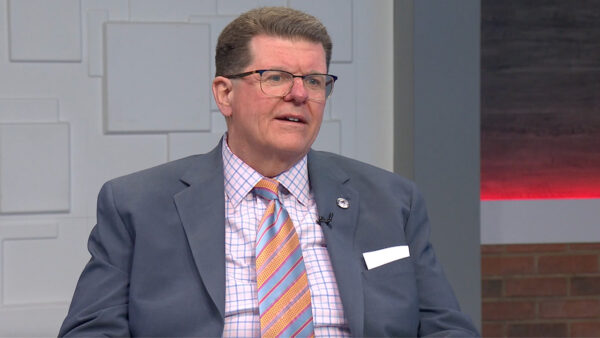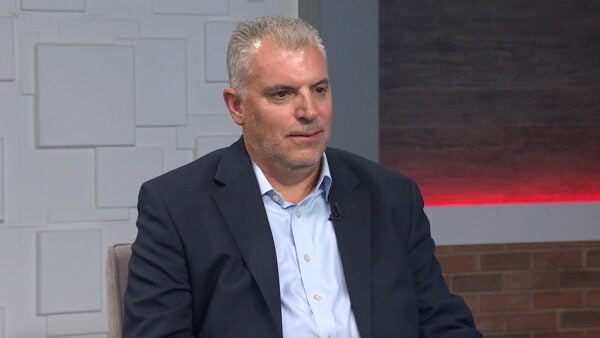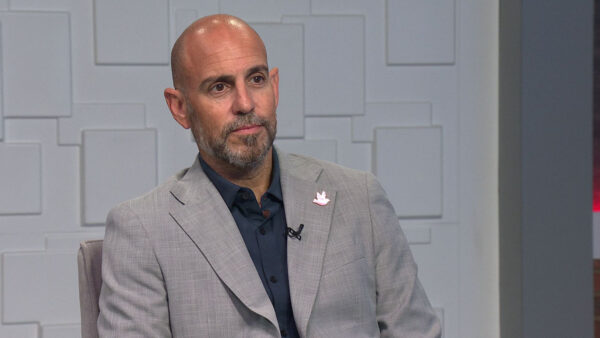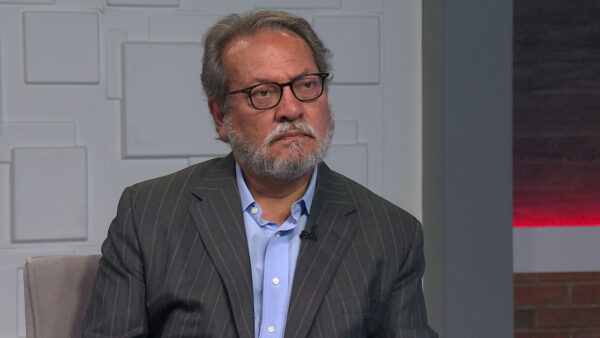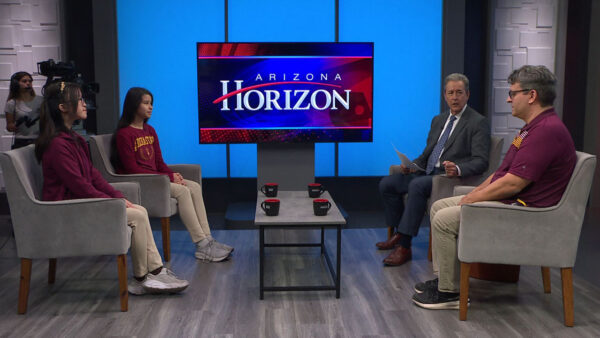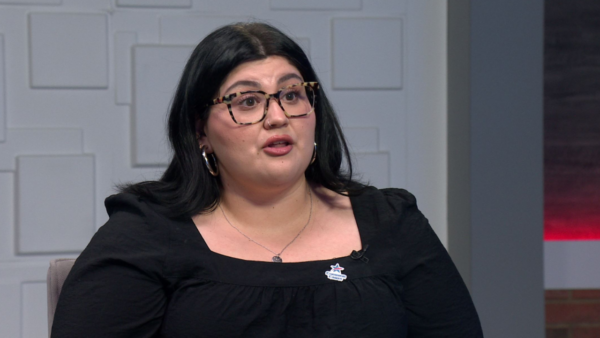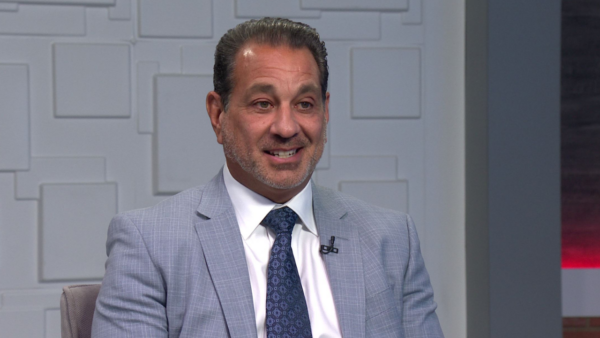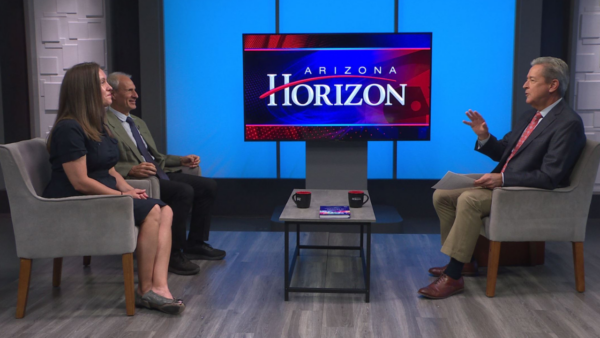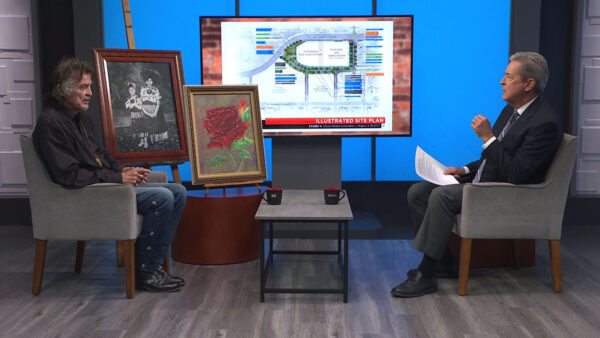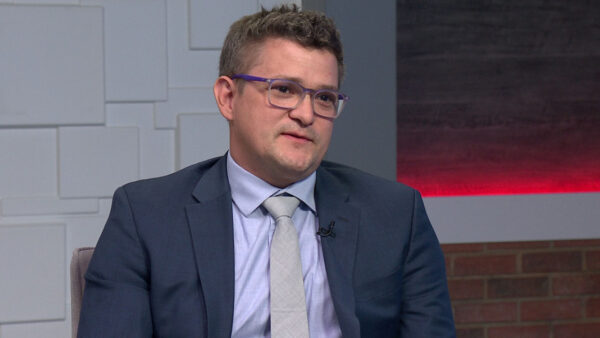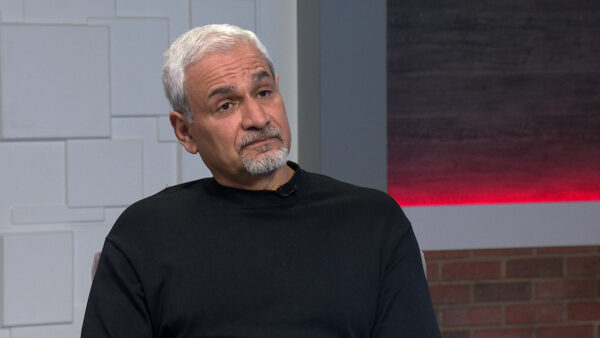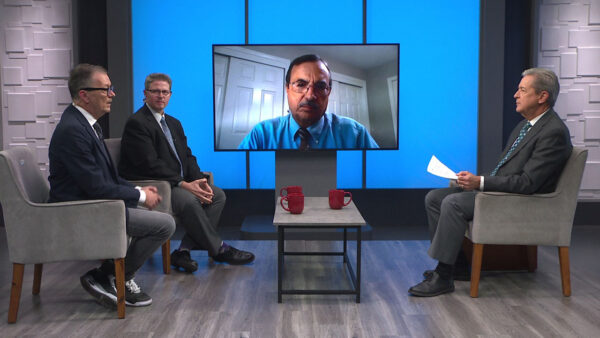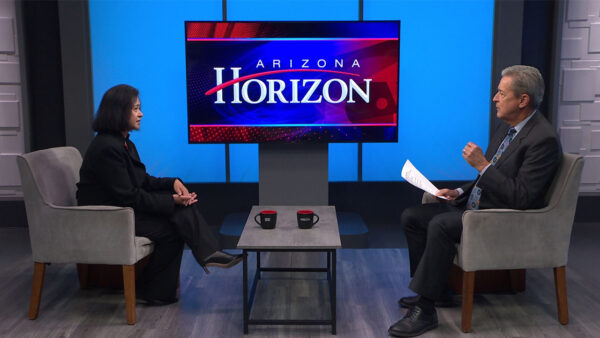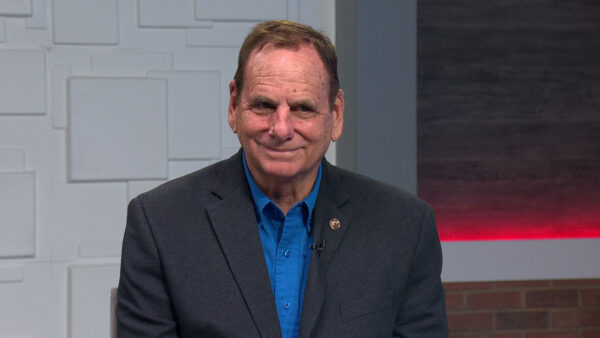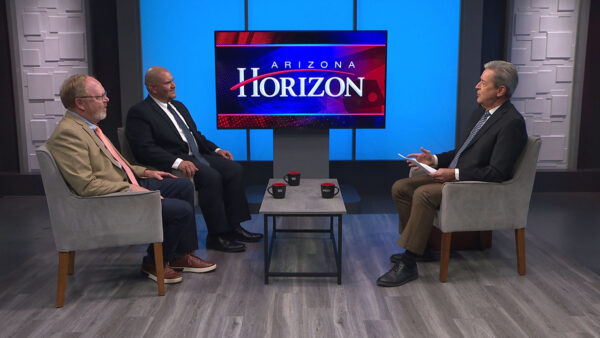We’ll take a look at the state of corporate giving in our state and nation. Elisa de la Vara, senior director of community initiatives for the Arizona Community Foundation and Deborah Bateman, vice chairman of the National Bank of Arizona, will talk about corporate giving (one more guest pending).
TED SIMONS: In tonight's edition of give Arizona "Giving and Leading," we take a look at the state of corporate giving in Arizona. Our guests, Elisa De La Vara, senior director of community initiatives for the Arizona Community Foundation, Deborah Bateman, vice-chairman of the National Bank of Arizona, and Todd Cooley, corporate development officer at the Society of St. Vincent dePaul.
TED SIMONS: What is the state of corporate giving in Arizona?
ELISA DE LA VARA: After a pretty rough economic time, we're starting to see an uptick in corporate giving. It's trying to get back to the same level it was before our economic downturn. We're seeing some progress.
TED SIMONS: Some progress there. That economic situation, how did that impact corporate giving?
ELISA DE LA VARA:You know, it did impact a lot. We actually divested into some other areas such as marketing and advertising and we're able to maintain our giving through that particular period, because that was part of our value set to be able to continue to support our community.
TED SIMONS: With that in mind, what did you see before the economic downturn, what have you seen since, and are things starting to pick up?
TODD COOLEY: They are. We are seeing a lot of activity with our corporate partners. We've been blessed, we have so many corporate partners that continue to be wonderful donors and partners of ours. Before the economic downturn, and after the economic downturn. I think Deborah is correct, they find ways to support the community. In terms of the needs, with the recession the way it was, if there was any blip on any one of our families or individuals in the course of their day, if they had a flat tire, because they were so close to the wire economically, that puts them back into our lines again. It's so difficult for them to get out of those lines when they have those hardships in their day to day. We're very fortunate most of our partners have continued to give to us even in hard times.
TED SIMONS: Let's talk about the methods of giving. Sponsors, volunteerism, direct donations, these types of things. What are you seeing as far as corporate giving in concerned?
ELISA DE LA VARA: When we have a corporate interest in doing this, we sit down with the corporation, talk about their wishes and how they want to do this. There are a number of ways to give, whether it's through a corporate donor advice fund, a field interest fund or just a corporate sponsorship where we're doing the back office for the corporation, there are thousands of ways in which a corporation could give. We try to sit with the corporation and make sure we can provide consultation as appropriate, and customize what the corporation wants and develop the program that's going work for them. We have the tools and efficiencies and procedures in place, in terms of getting the grants out there, once we know what the corporation wants to do.
TED SIMONS: And does the corporation always know what it wants to do?
DEBORAH BATEMAN: You know what, I hope so. I hope so. A lot of times that may be at the top and push down. But in the best cases I really believe it's a grass roots effort and really build up. With us being an Arizona Corporation, extending to the Arizona boundaries, we're very specific in knowing that we want to help Arizona not for profits that are supporting Arizona families. And that gives us a wide span to absolutely concentrate in.
TED SIMONS: As far as dealing again with corporations, do they come to you and say, we want to help, tell us? Or we want to help, here's how.
TODD COOLEY: Both, both. Very oftentimes, if it's pushed down from the ideals of the CEO level, oftentimes they will tell us we want to be involved in anything that's got do with children or technology. Or we want something that's human services or they may be more specific. We'd like to help, we want to be a partner, we don't know how. The best I possibly can I like to match those philanthropic goals and objectives with what they are offering. But to make sure they have a rewarding experience of being a partner of hours.
ELISA DE LA VARA: One of their affiliate offices or a branch office are here, we can connect them to officers doing the type of work they are interested in funding. Because we are statewide we can work through our affiliate offices in helping them reach a goal.
TED SIMONS: As far as benefits for business, obviously being visibly involved in the community, that's a benefit for the business, as well. Talk again about even a benefit for the workers and how they would become not only involved in the community but may be better involved in the business.
DEBORAH BATEMAN: Well, I think employees that want to give back or that are philanthropic or have that open heart are going to be attracted to the companies that feel the same way. So when a corporation can provide those opportunities, whether it's for volunteering, directing donations, getting involved from a partnership standpoint and working with the not for profit in different ways, I think that creates a win-win and a ripple effect in the community.
TED SIMONS: Interesting. And again, dealing with the receiving end, if there's direct donation involved, if there's an in-kind donation involved, does it always work out for the best in those situations or can there be challenges?
TODD COOLEY: There can be challenges, but we're very, very resourceful. Our mission is to feed, clothe, house and heal. We're very resourceful with everything we receive, whether it's monetary or an in-kind donation. We'll take a pair of tennis shoes or , tennis shoes. We find something to do with anything you could donate for us.
TED SIMONS: We've talked a little bit about donor guided and donor advised contributions. Again, there can be some challenges there, can't there?
ELISA DE LA VARA: Absolutely, there can be challenges in everything you do. With a got a understanding and a good corporation, I think those kinds of issues can be ironed out. It's really about working with the mission of that on, what that business wants to do, maxing it up and making they are we have the right resources and back office for their interests.
TED SIMONS: How does this all get done, is it top down?
DEBORAH BATEMAN: You know, it's so much a part of our DNA and a part of who we are. The way we do business is based on relationships, the way we deal with the nonprofits is also very much based on relationships. It's exactly what you're saying, sitting down, and understanding their needs. Yes, there are also times we write checks but even volunteer some of our intellectual property to support the system. It's about relationships and partnerships.
TED SIMONS: When you deal with a corporation you have specific needs, I am sure you always want a circumstance around thanksgiving. Do you feel comfortable asking for specific things? Or is it more of a relationship sort of thing?
TODD COOLEY: What I like to do is really afternoon the best alignment with that corporation. All of the cans of corn in the world aren't going to pay our electric bill. I'd really like to sell almost a three-pronged approach. We have to pay the electric bill, B, any kind of drive a food drive, a water drive, a sir. The volunteers are our labor force.
TED SIMONS: Yes, indeed. And dealing now with big corporations, small businesses, the differences.
ELISA DE LA VARA: Well, it really depends on what the corporation's wishes are. If you're going to be very, very razor focused, that presents challenges in terms of finding that specific entity they want to found. But when the folks on the air in our pillars it makes it a lot more convenient to align with the corporate goals. Arizona Cox Communication, National Bank of Arizona and we did the Super Bowl this year, so we've been challenged in a variety of levels.
TED SIMONS: National Bank of Arizona ever do a challenge to other corporations? Why aren't you doing this?
DEBORAH BATEMAN: That is on our agenda for this you've. Actually rather than chan I say patient list and actual the community together involved in giving these not for profits.
TODD COOLEY: We find those competitions the most successful. Whether internally inside of a corporation, or a partnership corporation, any time we see a competition we see the end results skyrocket. We love those partnerships, people are people.
DEBORAH BATEMAN: They are.
TED SIMONS: Good to have you, continued success and good fortune.
COLLECTIVES: Thank you!
TED SIMONS: Wednesday on "Arizona Horizon" we'll hear from those in support of a new Grand Canyon watershed national monument. And we'll have an update of the new ASU-Mayo Clinic medical school. That's at : on the next "Arizona Horizon." Thanks for joining us, you have a great evening. ¶¶
VIDEO: Arizona Horizon is made possible by contributions from the Friends of Eight, members of your Arizona PBS station. Thank you. Captioning Performed By LNS Captioning www.LNScaptioning.com
Elisa de la Vara,:Arizona Community Foundation Senior Director of Community Initiatives;Deborah Bateman:National Bank of Arizona Vice Chairman
